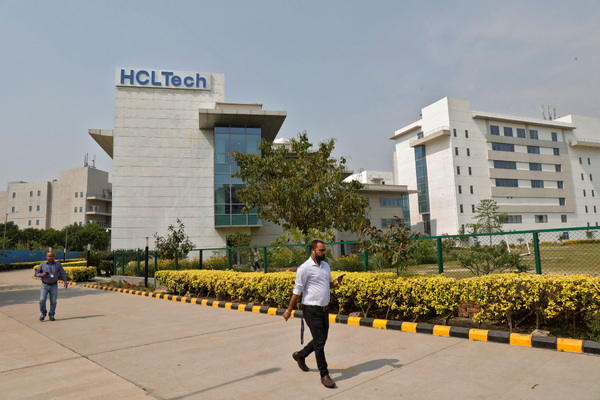In an era of uncertainty, leadership development is no longer optional

How well do you trust your ability to lead? When you consider the average tenure for a C-suite executive is around four and a half years, most of today’s senior business leaders have faced what would have previously been considered a career’s worth of challenges. Pivoting business operations to survive a global pandemic. Competing for talent in the height of the Great Resignation. Managing through economic uncertainty and widespread layoffs. Adjusting to hybrid employee and client work environments.
The common denominator in all these scenarios is not business acumen, healthy margins or market share. It’s people. Specifically, the talent it takes to successfully run a business through cycles of upheaval.
Given the accelerating pace of both change and expectations, businesses need stronger talent in more places. In other words, modern leadership is about teamwork across multiple levels. And any team is only as strong as its weakest link.
When it comes to leadership development, then, it is no longer a question of whether you can afford to budget the time or the money. It is a question of how long you can limp along without it.
Our personal and professional lives are in flux
In the early days of the pandemic it became essential for business leaders to enhance so-called soft skills such as communication and empathy to support colleagues in unprecedented circumstances. The legacy of that is evident.
For the past few years, businesses have been the most trusted institutions, outpacing social and traditional media, government and even NGOs. Yet the end of the Covid-19 state of emergency has not meant a return to stability.
Nearly half of the world’s population is participating in elections this year. Economic shifts caused by unforeseen events, the impact of generative AI on skills, productivity, and workflow, and significant concerns about climate change, food supply, and energy, as well as job security, have all led to a general sense of unease.
Some business leaders can impact a number of these factors directly – even those who aren’t responsible for acknowledging and helping to manage stressors outside of work in order to mitigate disruptions and maximise workplace performance.
Short-sighted policies are stifling progress
It doesn’t help that the soft skills so prized not so long ago have receded in priority and practice. Some organisations have regressed to business as usual, with the fear that they can’t afford to invest in developing leaders at a time when every budget line item is being scrutinised.
Under the right circumstances, fear can push boundaries and produce improvements and innovations. Under the wrong circumstances, fear pushes people to run in panic, not to lead with purpose.
More and more, organisations are having one-sided conversations about workplace environments and policies. Despite indications that employees are concerned about finding balance and flexibility, many businesses are focusing solely on productivity and the bottom line. This risks the appearance that employee discontent and burnout are merely collateral damage.
But the damage goes deeper. Even though business R&D expenditures are on the rise, the socioeconomic impact of innovation remains low.
People can’t meaningfully innovate and embrace change in an environment of personal and professional uncertainty. Leaders need to be the anchor – a place of stability from which to launch and sustain new initiatives.
In search of the limitless leader
Leadership development has traditionally been viewed as a short-term salve rather than a long-term strategic tool. Acquiring new skills and sharpening existing skills are both important, but effective leadership development is both proactive and persistent.
Instead of viewing it as an ancillary function, consider leadership development as core to your operations. It should be aligned with ongoing market needs and business goals as well as immediate functional gaps.
And if it hasn’t already, it should start today.
The challenges we are experiencing require leaders who are not bound by preconceptions or restricted in their capabilities. They are visionary, strategic and tactical – able to do, not just direct. They can continuously manage through fast-paced changes in the business, armed with additional insights gained through learning and coaching experiences.
Future-proofing 101: preparing all leaders to lead
Leaders steeped in lifelong learning offer another advantage. They can see the potential for your organisation’s high performers to be fully realised contributors to corporate productivity, stability and culture.
That omnidirectional perspective is the difference between executives who are prepared to lead and an organisation that is prepared to lead. Development of leaders at all levels ensures your business has a deep and diverse bench of decision makers with the ideas, experience and adaptability to face anything.
That is a huge advantage for sustainable impact. In fact, impact begins with properly prepared leaders. And proper leadership development begins with a fully collaborative, top-down culture that empowers people to move competently through uncertainty to reach the opportunities ahead.
How far you go depends on who is leading the way
Over the past several years the world has transformed at an incredible rate, and shows no sign of slowing down. Yet many businesses are still looking towards “recovery” as if there is an end state to which we will return.
As goals and imperatives evolve faster than ever before due to an uncertain landscape, leaders must continually be trained to face and meet those challenges. But we need to do more than just open the door to development opportunities for current and rising leaders.
We need to reshape ideas about how to best apply the talent within our organisations. That includes reprioritising the “human” in human capital and cultivating workplaces that truly see the value in investing in people and their short- and long-term potential.
The reality is that there is no going back. Even the best leaders who trust in their abilities know there is always room for growth – for themselves and those around them. Leadership development is the key to help businesses stop reacting and start seizing control of the next stage of their evolution.
Design a leadership development program that engages and retains your best employees. Learn more here.
by Stephen Bailey, Co-Founder and CEO, ExecOnline

Business Reporter Team
Most Viewed
23-29 Hendon Lane, London, N3 1RT
23-29 Hendon Lane, London, N3 1RT
020 8349 4363
© 2024, Lyonsdown Limited. Business Reporter® is a registered trademark of Lyonsdown Ltd. VAT registration number: 830519543
Join the Business Reporter community today and get access to all our newsletters, and our full library of talk show episodes
Join the Business Reporter community today and get access to all our newsletters, and our full library of talk show episodes





